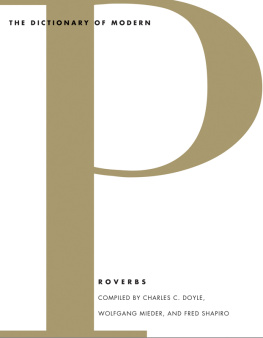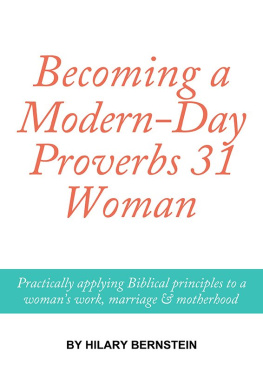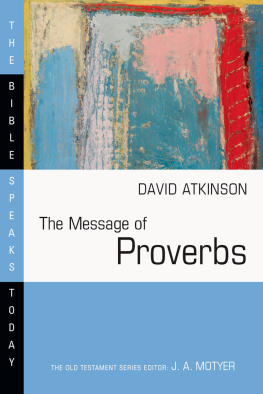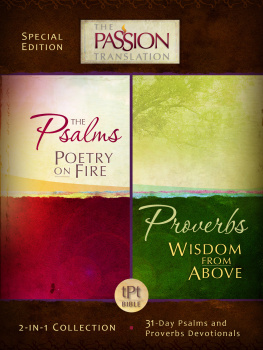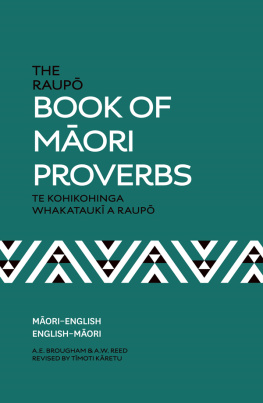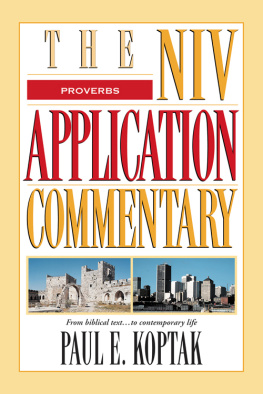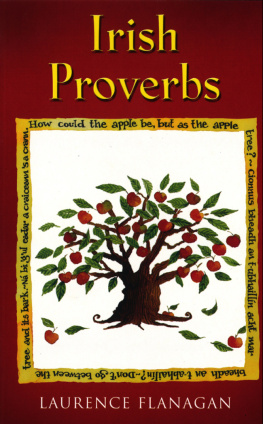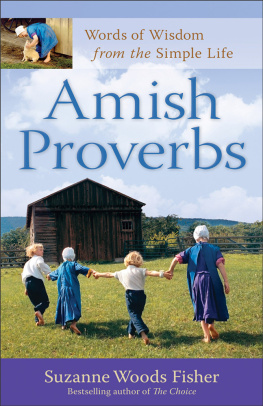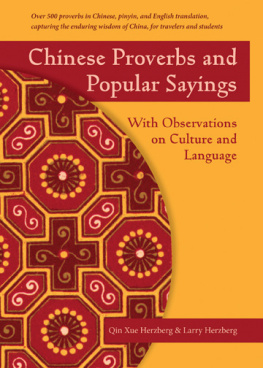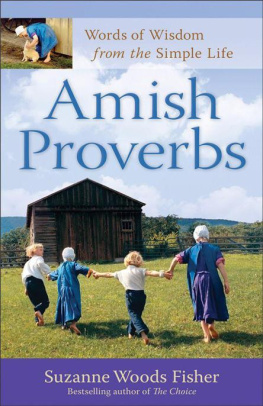The Dictionary of Modern Proverbs
The Dictionary of Modern Proverbs
Compiled by Charles Clay Doyle, Wolfgang Mieder, and Fred R. Shapiro
Yale University Press
New Haven and London
Copyright 2012 by Yale University.
All rights reserved.
This book may not be reproduced, in whole or in part, including illustrations, in any form (beyond that copying permitted by Sections 107 and 108 of the U.S. Copyright Law and except by reviewers for the public press), without written permission from the publishers.
Yale University Press books may be purchased in quantity for educational, business, or promotional use. For information, please e-mail (U.K. office).
Set in type by Scribe Inc.
Printed in the United States of America.
Library of Congress Cataloging-in-Publication Data
Doyle, Charles Clay, 1943
The dictionary of modern proverbs / compiled by Charles Clay Doyle, Wolfgang Mieder, and Fred R. Shapiro.
p. cm.
Includes bibliographical references.
ISBN 978-0-300-13602-9 (alk. paper)
1. Proverbs, English. 2. Proverbs, American. I. Mieder, Wolfgang. II. Shapiro, Fred R. III. Title.
PN6421.D69 2012
398.9'2103dc23 2011051982
A catalogue record for this book is available from the British Library.
Contents
Proverbs
The compilers thank the following individuals for their contributions to the project: Shirley L. Arora, Simon J. Bronner, Robin DuBlanc, Jane Garry, Elissa R. Henken, Susan Laity, Jonathan Lighter, Jay Mechling, Bill Mullins, Elliott Oring, Garson OToole, Barry Popik, Kelly Revak, Thomas Skinner, Victor Steinbok, Patricia Turner, and Benjamin Zimmer.
The Dictionary of Modern Proverbs is the culmination of a unique project: an extensive, focused effort to collect proverbs that, as far as the compilers have been able to ascertain, originated in English no earlier than 1900 and to present them in a systematic fashion with illustrative quotations.
A frequently used synonym for the word proverb in sixteenth-century England was old said saw. While rightly acknowledging the fundamentally oral character of proverbs (in fact, said and saw are cognate saying words), the phrase old said saw also voices the common impression that proverbs, by their nature, must be old expressions, somehow encapsulating the venerable wisdom of long-ago times. The very concept of a modern proverb, then, would seem anomalous or paradoxical.
However, there must have existed a time when even an old said saw was a new said saw! Like other kinds of folklore, and like words themselves, new proverbs are continually being fashioned or coined (while others lapse into obsolescence). Such is the nature of human creativity as expressed in oral tradition, where proverbs exist before someone thinks to write them down.
While folklorists know that new proverbs continually arise, published compilations of proverbs have not kept up with the expanding repertory. In contrast, lexicographers compiling dictionaries of words search relentlessly for new coinages and new uses of words, taking as their database the whole panoply of current language acts: newspapers, magazines, books, technical journals, television, radio, popular music, motion pictures, e-mail, snail mail, junk mail, and oral discourse. The makers of major English dictionaries maintain their own computerized databases, which are constantly being updated and expanded.
Dictionaries of proverbs, on the other hand, have mostly been compiled from fixedand often rather oldcollections of data, and even in their implicit policies governing what expressions to regard as proverbs, they have tended to rely on what earlier proverb dictionaries included. The process becomes circular, then: a proverb, almost by definition, is an expression certified as such by its inclusion in proverb dictionaries!
B. J. Whitings magisterial compilation Modern Proverbs and Proverbial Sayings (1989) was based on notes Whiting took as he detected proverbs in the course of his career-long recreational reading, especially mystery novels; most of his citations come from works published in the first two-thirds of the twentieth century (with some from the 1970s and early 1980s). The vast Dictionary of American Proverbs (1992), edited by Wolfgang Mieder, Stewart A. Kingsbury, and Kelsie B. Harder, derived its entries from an extensive collecting project sponsored by the American Dialect Society, in which academicians and laypeople were encouraged to mail in expressions they had heard that sounded proverbial to them; mostly the items were submitted between the mid-1940s and the mid-1970s. Even for expert paremiologists, and even more for the largely untrained contributors to the American Dialect Societys project, it can take time for the consciousness to register a new expression as proverbial and thus for it to be collectable from oral or written sources. Proverbs of recent coinage have inevitably been slighted.
The term modern proverbs in Whitings title is ambiguous, but it is intended to mean proverbs (of whatever age) current in modern times, though the dictionary does include some that appear to have originated in the twentieth century. Likewise with the Dictionary of American Proverbs: among its fifteen thousand (or so) entries, several dozen modern coinages are found, but the bulk of the entries testify to the twentieth-century currency of older sayings.
Most other recent proverb dictionaries have relied heavily on the Dictionary of American Proverbs for their entries. An important exception is the Random House Dictionary of Americas Popular Proverbs and Sayings, compiled by Gregory Titelman (1996, 2000). Another exception is the Oxford Dictionary of Proverbs, currently in what is called the fifth edition (2008), the first three editions (1982, 1992, and 1998) having borne the title Concise Oxford Dictionary of Proverbs. The editor, Jennifer Speake, notes, It is a reflection of the proverbs vitality that new ones are continually being created as older ones fall into disuse (x). The Oxford University Presss online catalog in 1999 rashly claimed that the third edition (a concise one) had been updated to include every major proverb in use in the twentieth century. The advertisements emphasized the inclusion of recently coined proverbs. However, as regards proverbs originating in modern times, the Oxford Dictionary of Proverbs falls short in two respects. First, it includes comparatively few proverbs that the dictionarys own entries trace back no further than 1900. Second, many of those new proverbs, upon further scrutiny, turn out to be older than 1900.
Even for the 2008 edition, the compilers of the Oxford Dictionary of Proverbs seem to have made hardly any use of the indispensible new technology for language study: computer searches of the numerous electronic full-text databases that are availablethe size, number, and scope of which will continue to burgeon.
*
The present compilers have taken advantage of those resources. The Dictionary of Modern Proverbs is the first proverb dictionary ever to be based on such research. For the proverbs entered here (as well as the great many others that were considered but rejected on account of their age or lack of frequency), we have searched ProQuest Historical Newspapers, Newspaperarchive, Americas Historical Newspapers, 19th Century U.S. Newspapers, LexisNexis Academic, Google News, Google Books, JSTOR, and other databasesseeking the earliest available instance of the proverb in print (or in other media), hoping to get as close as possible to the time when the proverb existed only in oral tradition, or, in some cases, when the expression passed from print (or film, or popular song, or the reported words of a famous person) into oral tradition as a proverb.
Next page
